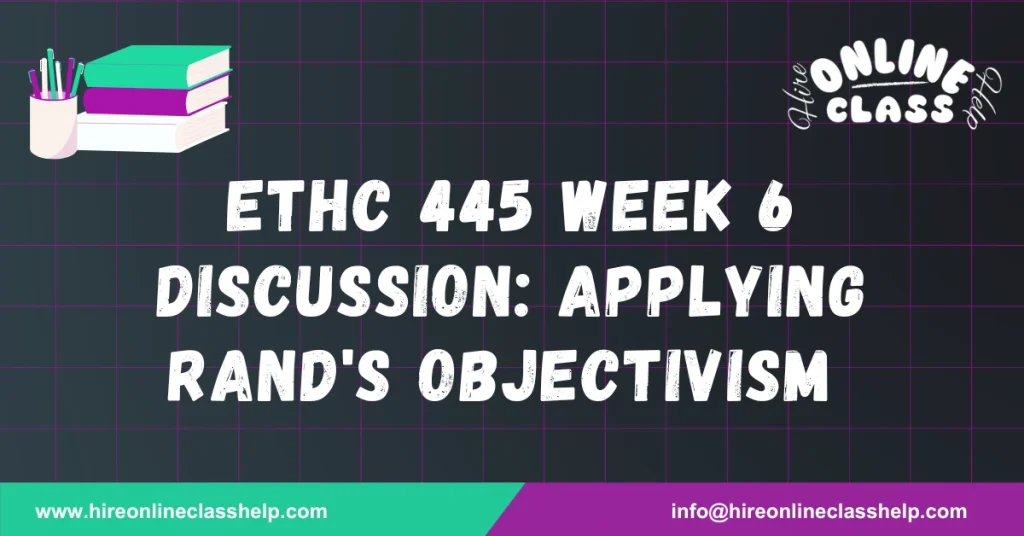






Name
Chamberlain University
ETHC-445 Principles of Ethics
Prof. Name
Date
Read/review the following resources for this activity:
Ayn Rand’s philosophy of Objectivism has been criticized by some as a doctrine promoting self-interested selfishness. The four key epistemological principles of her philosophy are as follows:
In the early 1960s, a student inquired of an Objectivist spokesperson about the fate of the impoverished in an Objectivist society. The spokesperson replied, “If you want to help them, you will not be stopped.” This response aligns with what one might infer Ayn Rand would assert in her works, such as Atlas Shrugged or The Fountainhead.
For the initial post, address the following:
When making decisions, it is crucial to consider what we believe is right while also acknowledging the perspectives of others. Maintaining high moral standards regarding our choices is essential. Although we may not always act in self-interest, we should remain open-minded and accepting of different viewpoints. Rand states, “Man must choose his actions, values, and goals by the standard of that which is proper to man – in order to achieve, maintain, fulfill and enjoy that ultimate value, that end in itself, which is his own life” (Introduction to Objectivism, n.d.). She posits that decisions should be made based on one’s own best interests, potentially disregarding the adverse impacts on others. While this perspective does not entirely align with my beliefs, I respect individual autonomy.
The spokesperson’s assertion that “If you want to help them, you will not be stopped” suggests a profound sense of personal freedom to act in accordance with one’s moral beliefs. It implies that if you choose to assist others, you are aligning with what you perceive as the right action in that context. Conversely, opting not to help indicates a belief that doing so is not in your best interest. Thus, individuals navigate their decisions based on what serves their self-interest while also reflecting their moral compass.
| Heading | Details |
|---|---|
| Philosophical Principles | 1. Metaphysics: Objective reality. 2. Epistemology: Reason as the key to understanding. 3. Ethics: Self-interest in behavior and morals. 4. Politics: Capitalism driven by self-interest. |
| Spokesperson’s Message | Individuals are free to help others if they choose; inaction reflects personal belief about self-interest. |
| Moral Considerations | Importance of balancing self-interest with moral judgments and openness to differing perspectives. |
Chamberlain University. (2018). Lesson 6: Ethics within human relationships. Retrieved from https://chamberlain.instructure.com/courses/34375/pages/week-6-lesson-ethics-within-human-relationships?module_item_id=4086714
Introduction to Objectivism. (n.d.). Retrieved from https://www.aynrand.org/ideas/philosophy